Election 2019: India grows impatient for revival Narendra Modi promised
As World's longest elections comes to an end, people angry over Modi's failed promises from before Lok Sabha elections, 2014


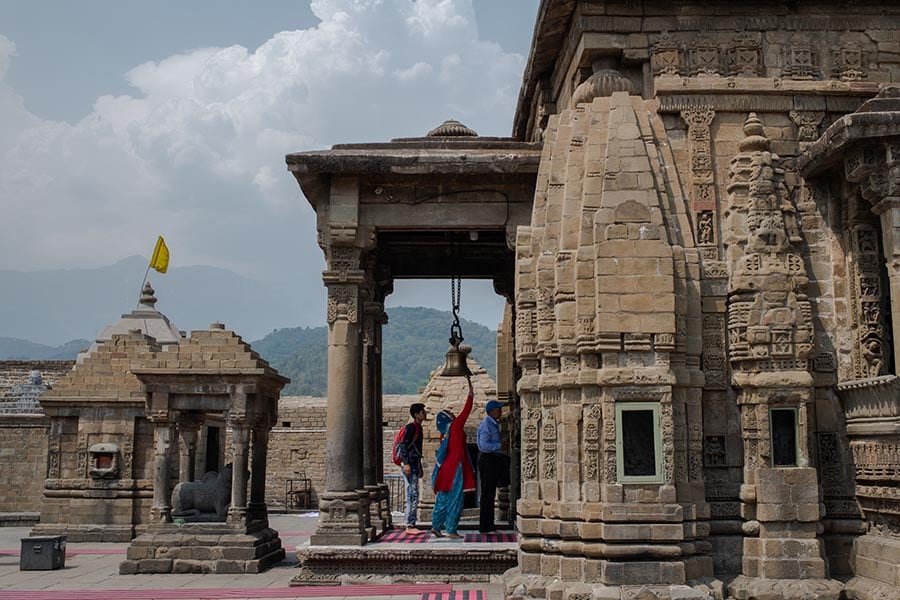 Devotees walk through the Shiv Temple in Baijnath, India, May 10, 2019. As Prime Minister Narendra Modi seeks re-election, he confronts anger over a weakening economy and failed promises to revive stalled infrastructure projects.
Devotees walk through the Shiv Temple in Baijnath, India, May 10, 2019. As Prime Minister Narendra Modi seeks re-election, he confronts anger over a weakening economy and failed promises to revive stalled infrastructure projects.
Image: Rebecca Conway/The New York TimesLUNSU VILLAGE, India — Across the Kangra Valley, in the hills below the snow-capped peaks of the Himalayas, the promise of a modern railway reverberated like the beginning of something vital — access to jobs, hospitals, universities and shops.
Many villages were connected to the rest of the country by rutted dirt roads and a rickety railway erected by the British a century ago. During the monsoon, landslides blocked trains and flooded roads, rendering them impassable.
Narendra Modi, then running for prime minister, had come to the region in 2014 promising liberation. A new rail line would provide fast and reliable train service. But five years later, with Modi seeking re-election, villagers look down the bluff at the old tracks with a mix of disgust and resignation.
“Nothing has happened here,” says Lata Devi, 55. “I want to meet Modi directly. I want him to see how we live here. I will not be casting a vote, and I will break the legs of anyone who does.”
As India nears the end of the world’s largest election, which began last month, Modi is confronting anger over his failure to deliver on the promise that brought him to office — economic revitalization.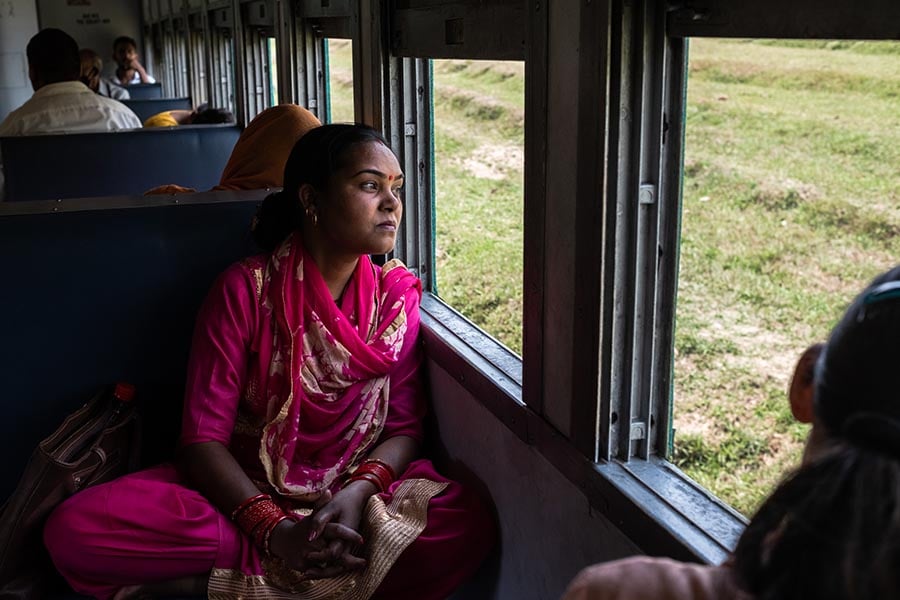 Sapna Devi rides the train from Joginder Nagar, India, May 10, 2019. As Prime Minister Narendra Modi seeks re-election, he confronts anger over a weakening economy and failed promises to revive stalled infrastructure projects.
Sapna Devi rides the train from Joginder Nagar, India, May 10, 2019. As Prime Minister Narendra Modi seeks re-election, he confronts anger over a weakening economy and failed promises to revive stalled infrastructure projects.
Image: Rebecca Conway/The New York Times[br]
The prime minister has drawn praise for paring India’s legendary bureaucracy. He has altered perceptions that his country was hostile to business. But he has failed to spur significant economic growth, in part because of his disappointing record in reviving stalled infrastructure projects. The prime minister has championed rail, road and electrical links as a means of furthering development across this country of 1.3 billion people.
Although road-building has proceeded aggressively, infrastructure overall has fallen short. During the last three months of 2018, investments in new projects slumped to their lowest level during Modi’s tenure, according to the Center for Monitoring Indian Economy, an independent research organization in Mumbai.
“The fall after 2016 has been quite severe,” says Mahesh Vyas, the center’s managing director. “He thought he could solve all those things with a magical wand.”
Slowing growth has reduced government tax revenues, forcing Modi to slash spending on public works. Private toll roads and power plants have stalled as banks have withheld financing after losses on previous ventures.
The prime minister inherited a troubling condition that has plagued India for decades: What economic growth the country generates does not produce enough jobs. He vowed to create 10 million jobs a year.
As a former chief minister of his home state of Gujarat — widely hailed as India’s most entrepreneurial — he was celebrated as a leader who could harness India’s natural resources, intellectual prowess and enormous workforce toward industrializing.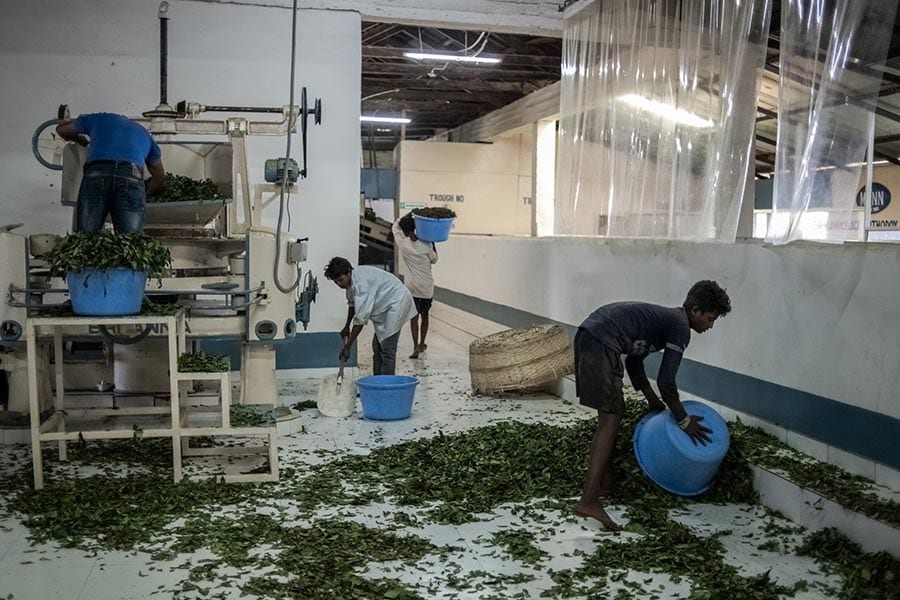 Indian workers at the Mann Tea Estate, run by the Dharmsala Tea Company, on the outskirts of Daramshala, India, May 9, 2019. As Prime Minister Narendra Modi seeks re-election, he confronts anger over a weakening economy and failed promises to revive stalled infrastructure projects.
Indian workers at the Mann Tea Estate, run by the Dharmsala Tea Company, on the outskirts of Daramshala, India, May 9, 2019. As Prime Minister Narendra Modi seeks re-election, he confronts anger over a weakening economy and failed promises to revive stalled infrastructure projects.
Image: Rebecca Conway/The New York Times[br]
But a signature program, Make in India, which aimed to help manufacturing, has produced a bumper crop of public pronouncements and scant hiring, in part because the nation’s patchy infrastructure has discouraged investment. The unemployment rate climbed to a 45-year high of 6.1% last year, from 2.2% in 2011, according to the government’s National Sample Survey.
Nonetheless, Modi has won the ardor of the masses with his appeals to Hindu nationalism and his military confrontations with India’s nemesis, Pakistan. He is widely expected to claim re-election after voting ends Sunday.
Here in the northern state of Himachal Pradesh, the prime minister enjoys special rapport owing to his days overseeing the region for his Hindu nationalist political organization, the Bharatiya Janata Party, or BJP.
From the city of Dharamshala — best known as the headquarters of the exiled Tibetan spiritual leader, the Dalai Lama — to the villages of the Kangra Valley, people lament the state of the economy while still praising Modi.
“He is a great man,” says Ajai Singh, managing director of Glenmoor Cottages, a collection of private residences in a grove of towering cedar trees in Dharamshala. A BJP flag flies from his rooftop.
“He hasn’t achieved anything,” Singh says later. “He will get another term, and then we will see results.”
The economy has expanded by a robust 7.3% annually during Modi’s tenure, better than the 6.7% rate in the previous five years, according to official numbers. But many economists accuse the administration of doctoring the data.
“The government was willing to play with numbers to score a point,” says Amiya Kumar Bagchi, an economist at the Institute of Development Studies Kolkata. The numbers “are wrong and possibly fabricated,” he adds.
Some of India’s problems are beyond the scope of any national leader. The American central bank, the Federal Reserve, has lifted interest rates, making the dollar relatively more rewarding for investors and prompting an exodus of money from emerging markets. Oil prices have soared, lifting fuel prices.
But some of India’s troubles flow directly from Modi’s actions, not least his disastrous 2016 move to ban most Indian rupee notes in a bid to disrupt finance for terrorists and black marketeers. The government failed to have new notes ready, creating a crippling shortage in an economy dominated by cash.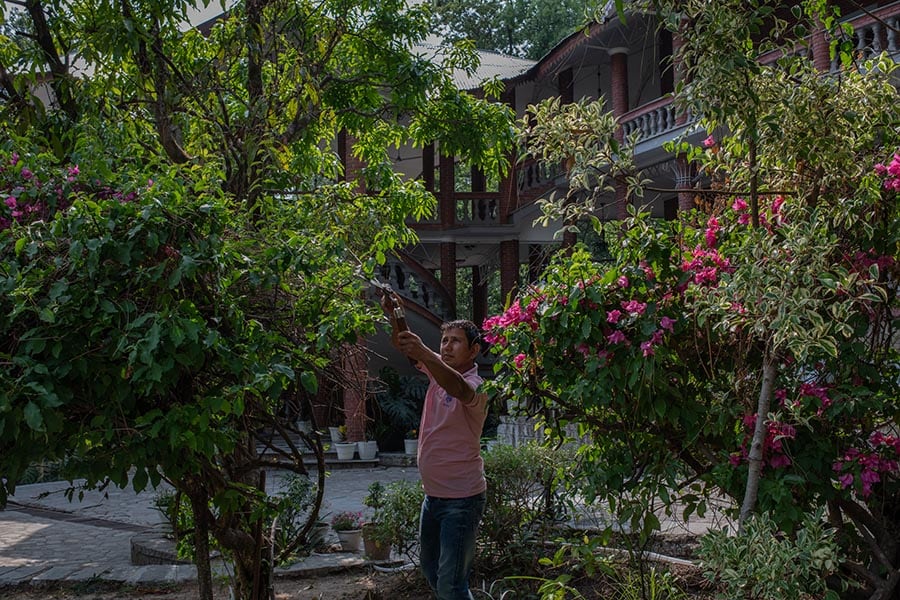 Vinod Kumar works at the Taragarh Palace Hotel near Baijnath, India, May 10, 2019. As Prime Minister Narendra Modi seeks re-election, he confronts anger over a weakening economy and failed promises to revive stalled infrastructure projects.
Vinod Kumar works at the Taragarh Palace Hotel near Baijnath, India, May 10, 2019. As Prime Minister Narendra Modi seeks re-election, he confronts anger over a weakening economy and failed promises to revive stalled infrastructure projects.
Image: Rebecca Conway/The New York Times[br]
“I cannot begin to explain the sheer stupidity of that,” says Jayati Ghosh, an economist at Jawaharlal Nehru University in New Delhi. “What you did was suck the lifeblood from the market system. It was a huge crime on the Indian population.”
Modi’s lack of success in completing stalled infrastructure projects has left many rural people stranded far from jobs.
Anek Kumar, 42, has worked at the Dharmsala Tea company for more than a dozen years. He sweeps freshly harvested leaves into piles and feeds them into machines that roll them into tea, earning 7,100 rupees (about $100) per month.
He travels 90 minutes from his village to get to work, walking 4 kilometers (about 2.5 miles) up a dirt road and then riding a bus. There are no full-time jobs closer to home, he says.
The crisis of joblessness is especially acute among younger people. Between 2011 and 2018, the unemployment rate for young men ages 15 to 29 soared from 8.1% to 18.7%, according to the employment survey. Among young women, the jobless rate more than doubled, rising from 13.1% to 27.2%.
Sudesh Bedi, 21, is completing a master’s degree in computer applications at Himachal Pradesh University. A few weeks ago, he ran into a recent graduate who was operating a tea stall. Another graduate was working as a house painter. Neither of these encounters enhanced Bedi’s confidence that education is a portal to a lucrative career.
His father, a rickshaw driver, has urged him to seek a government job, accepting a modest but steady paycheck. Bedi has opted for entrepreneurial pursuits. He and a friend started a business marketing computer security software to customers in North America. Last year, they opened a coffee shop, selling fruit juice and espresso to the international hippie backpacker set.
“Until now, Modi has only said things,” Bedi says. “He hasn’t actually done anything about creating jobs.”
That sentiment echoes through the Kangra Valley, where people had hoped the promised rail upgrade would deliver fresh economic opportunities.
At campaign rallies in 2014, Modi vowed to strengthen the railway links of Himachal Pradesh. Local members of Parliament promised to revamp the line running east from the city of Pathankot, in the state of Punjab, to Joginder Nagar, a 100-mile journey that takes 10 hours. They would replace the single-gauge tracks with broad gauge, while extending the line some 500 miles north to the city of Leh, in the mountainous state of Ladakh.
The town of Baijnath seemed poised to benefit, given its 13th-century temple dedicated to the Hindu deity Shiva. Pilgrims travel there to make offerings, and tourists arrive from around the world. A faster, more comfortable train would bring more.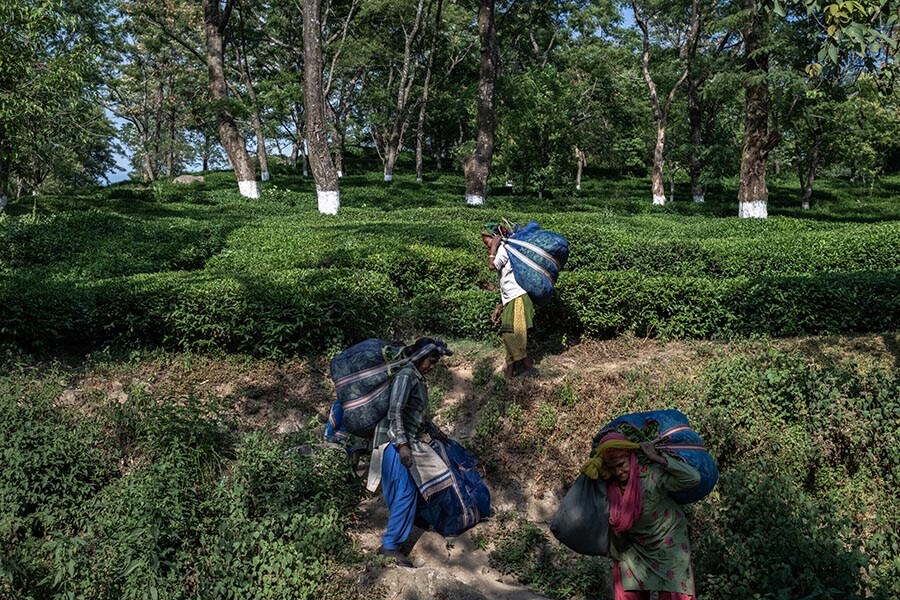 Indian tea pickers leave at the end of their shift at the Mann Tea Gardens, on the outskirts of Daramshala, India, May 9, 2019. As Prime Minister Narendra Modi seeks re-election, he confronts anger over a weakening economy and failed promises to revive stalled infrastructure projects.
Indian tea pickers leave at the end of their shift at the Mann Tea Gardens, on the outskirts of Daramshala, India, May 9, 2019. As Prime Minister Narendra Modi seeks re-election, he confronts anger over a weakening economy and failed promises to revive stalled infrastructure projects.
Image: Rebecca Conway/The New York Times[br]
In the hills above the temple, a fading luxury resort, the Taragarh Palace Hotel, looked to the rail project to help fill its rooms, now only one-fourth occupied, says the manager, Rajiv Mahajan.
In Joginder Nagar, the dusty city where the train now begins and ends, construction supply companies and electronics stores envisioned using rail to ship in wares from distributors and factories at half the cost they pay to trucking companies.
But when the railway ministry began surveying in 2016, it concluded that the existing rail had “heritage value” and should be preserved.
“The train hasn’t changed since the British built it,” says Suridender Pal, 50, a tailor. “Modi promised better days. We haven’t seen better days. Those who are rich have seen better days. Those who are poor have not.”
Later that day, in the nearby city of Mandi, Modi would address some 30,000 people at a rally, asserting that his government “is doing unprecedented work on the infrastructure here.”
Down at the station, an engine rumbles to life for its noon run.
A 68-year-old army veteran climbs aboard and settles into a hardback seat, headed back to his village after his monthly medical treatment at a military hospital.
Sapna Devi, 32, takes a seat next to her teenage daughter. They are bound for a Hindu head-shaving ceremony for her cousin’s newborn son.
The whistle sounds, and the train pulls away. It crosses a boulder-strewn river, passing a group of shirtless men who are bathing and washing their clothes. It rolls past women taking refuge from the sun under a leafy tree.
The carriage rocks, its cruising speed slightly faster than a cow ambling across a road.
“It’s pretty slow,” Devi says. “I wish it was faster.”
First Published: May 17, 2019, 14:42
Subscribe Now